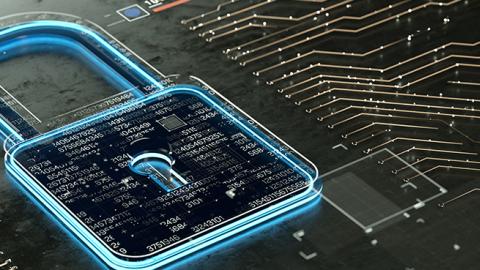The entire wireless world "descended on Barcelona":https://www.cnet.com/news/mwc-2019-the-7-coolest-things-we-saw-mate-x/ this week for the annual Mobile World Congress. Amidst the fancy new gadgets like folding phones it is important we maintain perspective on the forthcoming transition to 5G. The convergence of big data, AI, and 5G brings benefits, but the societal costs may be steeper than at any time in the history of communications.
On Page 19 of the "National Security Strategy":https://www.whitehouse.gov/wp-content/uploads/2017/12/NSS-Final-12-18-2… (NSS) there is a single line - “We will improve America’s digital infrastructure by deploying a secure 5G Internet capability nationwide.” This has been "misinterpreted":https://www.cnet.com/news/pompeo-warns-philippines-against-using-huawei… to mean we just wage war on Chinese telecom manufacturers. Such a plan would have been foolhardy. Instead, the line was meant to rediscover the principles that led to our unprecedented success as a nation, imbedding those characteristics into a redesigned Internet.
5G has been "completely misconstrued":https://www.digitaltrends.com/mobile/att-introduces-5ge/ through telcos marketing campaigns. The smart phone is "arguably the least affected":https://www.cio.com/article/3235971/5g-connection-density-massive-iot-a… by 5G, but that seems to be the focus. Instead, 5G will be a redesign of the Internet, "not for people, but machines":http://www.data-mania.com/blog/m2m-vs-iot/. Internet 1.0 led to an explosion in the software industry. Internet 2.0, or 5G, will lead to a similar explosion in the hardware industry as wireless connectivity, robotics, machine learning, artificial intelligence, and artificial and virtual reality animates the world around us.
From a societal standpoint, technology has "already outpaced":https://www.wired.com/story/nato-stratcom-catfished-soldiers-social-med… our ability to comfortably prevent bad side effects. The loss of as much as "$600 billion":https://money.cnn.com/2018/03/23/technology/china-us-trump-tariffs-ip-t… in intellectual property annually in the United States is accompanied by automated bots that implement targeted influence campaigns to undermine our confidence in society. 5G will be accompanied by machines that "have the capacity to kill if similarly compromised":https://www.zdnet.com/article/vodaphone-exec-talks-5g-autonomous-vehicl… (like self-driving cars or remote medical devices). Yet, the U.S. government has taken a hands off approach.
The EU has attempted to deal with some of the Internet governance issues by implementing the "General Data Protection Regulation":https://eugdpr.org/ (GDPR). Recently Google was "fined $57 million":https://techcrunch.com/2019/01/21/french-data-protection-watchdog-fines… for violating the regulation, but the fact remains that enforcement must come from outside the digital domain. The organic development of computing and networking technology has led to a "virtual world":https://www.smh.com.au/national/www-the-internet-has-become-the-new-wil… that cannot be governed.
A secure, nationwide 5G network envisioned a virtual world where laws would be enforced from within. Just like we have a military, policemen, and traffic lights in the physical world, building an Internet that allowed for rule of law would enable the kind of digital world envisioned by our nation’s founders. If built with forethought, like our constitution, a secure encrypted Internet would enable individual liberty, rule of law, protection of private property, data, and sovereignty in a way that promoted our democratic ideals.
On page 3 of the NSS, “Data, like energy, will shape U.S. economic prosperity and our future strategic position in the world” was meant to convey the importance of information in politics, economics and the military. Today, because of the Internet’s lawless nature, totalitarian regimes without the constraint of rule of law are "harnessing the power of data":https://www.wired.com/story/misinformation-disinformation-propaganda-wa… to shape political, economic, and security environments in their favor. Without change, the 5G environment will become deadly.
The second amendment stands as a testament to the oppression felt by the nation’s founders. They believed giving citizens the right to keep and bear arms would prevent a recurrence in the future, or at least the ability to resist. In the 21st century where a citizen may be "unaware of oppression":https://www.nytimes.com/2019/01/02/business/china-internet-censor.html, or "who the oppressor is":https://www.theguardian.com/technology/2018/nov/18/how-can-you-tell-who…, a gun looks to be irrelevant.
When considering how to govern the digital world it is important to remember it is the only manmade domain. The underlying technology defines the laws that must be obeyed and sets the conditions for the kind of digital society we want to live in. Unlike the Constitution, this cannot be written on paper. Rather it must be designed into the technology. Therefore government and not industry should be the starting point for saying what kind of digital world we want. Fortunately, this is no longer a question of technology, but of national will. If built correctly, with no back doors, a secure encrypted nationwide 5G network can restore confidence in data and strengthen our democracy for the Information age.

















